What is hegemony? (Olavo de Carvalho)
What is hegemony?
Two important events last week received little or no attention from the Brazilian media: the resounding success of George W. Bush’s visit to Romania and the 70th anniversary of the Soviet genocide in Ukraine. Of course: no fact that speaks in favor of the USA or against socialism is admitted by our journalistic class, increasingly reduced to the mere auxiliary force of the Gramscian “cultural revolution.”
Few peoples have the historical awareness of the Romanians. I have made several trips to Romania, have countless friends there, and all of them—from the highest stars of intellectuality such as the philosophers Andrei Pleșu and Gabriel Liiceanu to taxi drivers and domestic workers, from centenarian patriarchs to schoolboys—know by heart the epic of the struggles and sufferings of their country over six decades of totalitarianism, first Nazi, then communist. Even more: they have a sharp awareness that no nation that has lived these experiences can joyfully leap into the future, sweeping the past under the rug. When Pleșu, then Minister of Foreign Affairs, discovered documents that incriminated his friend and mentor Dan Lazarescu as a collaborator of the secret police of the extinct regime, the decision to disclose them must have hurt him as if cutting into his own flesh. Lazarescu, dean of the Senate, historian, and scholar, was a national idol, besides being a Grand Master of Freemasonry—and through him hundreds of Freemasons and non-Freemasons had found their way to prison and death. The revelation of his crimes was a trauma that few nations would endure without immediately falling into unsettling doubts about their own future. The enthusiastic reception of George W. Bush shows the unaltered firmness of the Romanian people’s choice for the Western model of democracy, without concessions to the easy anti-Americanism of many European peoples. The French and Germans may have forgotten that they owe their freedom to the Americans. The Romanians will not forget easily.
The massacre of the Ukrainians by the “weapon of famine,” undertaken by Stalin between the years 1932 and 1933, will also not be forgotten, despite the censorial efforts of our media. Denied for decades by the “chic progressive” Western press, today it is a fact perfectly assimilated by world historiography, especially after the opening of the Moscow Archives and the work of the Investigation Commission based in Montreal confirmed the account presented by historian Robert Conquest in the classic Harvest of Sorrow. Last Tuesday, at the Society of Friends of Ukrainian Culture, in Curitiba, I watched a film produced by the Commission with excerpts from documentaries filmed on site at the time. There were seven million deaths, mostly children—a Biafra-sized tragedy, only created on purpose for the elimination of resistance.
This difference, of course, does not absolve African socialism. In a survey conducted in 1985 by the UN in twenty African countries plagued by misery and hunger, all, without exception, had adopted in the previous decade agrarian policies of socialism, price controls, suppression of intermediaries—the entire statist paraphernalia that, in a country with enormously productive agriculture like Brazil, some still present as a “humanizing” solution. Add to this some tens of millions of victims of the Chinese “Great Leap Forward,” and you will see that, whether on purpose or due to the ineptitude of their economic policies, no regime at any time killed as many people by famine as socialism. These are matters that must be discussed at a time when Governor Germano Rigotto, revealing a morbid background of socialist scruples in his democratic mentality, hesitates to cut subsidies to the next World Social Forum. He should not only cut them but open an inquiry to investigate whether the previous two forums were not an abuse, a waste of public money in ideological propaganda of a genocidal regime. Why so many deferments, so many obeisances, so many obscene genuflections of democrats before socialist propaganda, as if this, with all the heinous crimes it legitimized over a century, were therefore invested with an exalted moral authority? Would the state government subsidize a congress of liberal or conservative propaganda? And if it did, would it not face immediately the PT’s clamor for investigations and punishments? Who does not see in this fear, in this weakness, the triumph of leftist hegemony, which managed to psychically disarm the opponent, reducing him to collaborator and slave? To those who believe the Gramscian project is a painless transition to socialism, it is good to remember that Gramsci never gave up the Leninist strategy of violence and terror. He only judged it convenient to postpone its application until the complete ideological destruction of the “class enemy.” In this sense, he added nothing to Stalinist technique. The Ukrainian example shows this well: first Stalin demolished the religion, culture, and morality of the Ukrainians. Only then did he undertake the assault on property and finally the confiscation of food reserves, starving his adversaries. The timing of the operation was perfectly Gramscian.
The demolition of the ideological defenses of the democrats in Brazil is already well advanced. So advanced that they spontaneously bow to the arrogance of the new masters, avoiding hurting their susceptibilities by reminding them of their past crimes and perversities. A leftist party changes its name, and that’s it! In a flash, it is absolved of four decades of moral support for genocide. Who on the "right" enjoys such a privilege? Subservience goes so far that it not only shapes the present but also reshapes the past. In a recently released book by a famous journalist, claiming to be a meticulous historical record of the military regime, I do not find the acronym “KGB” a single time. At the time, Soviet espionage had hundreds of paid influence agents in the national media. It even installed a bug in President Figueiredo’s office. It was one of the basic forces that created the history of the period, incomprehensible without the knowledge of this factor. And all of that disappears, radically falsifying the picture. The Cold War narrated to our public was not fought between two world powers, one democratic, the other totalitarian, but between evil Yankee imperialists and heroic Brazilian democrats—exactly as it was painted, at that time, by Soviet propaganda. Hegemony is this.
0



 Styxhexenhammer666
Styxhexenhammer666
 Blackpill_52
Blackpill_52
 RT
RT![React: JOÃO CARVALHO NÃO SABE O QUE É FASCISMO [REVOLUSHOW] - João Eigen](https://cdn.mgtow.tv/upload/photos/2025/09/YXcSnwZzQwbRDiR5U9lb_12_c860c21a8b09d171d1e4cd1584ab61cf_image_thumb_high.jpg)
 Sant77
Sant77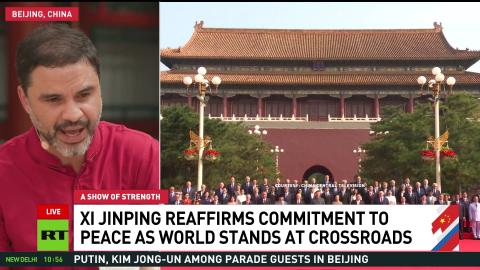

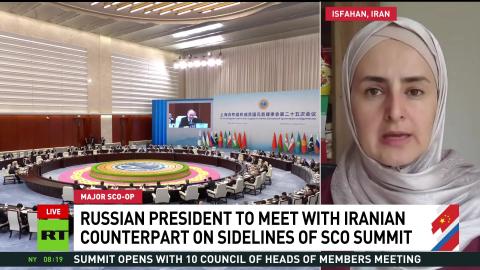
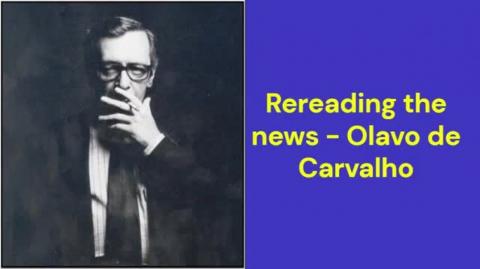
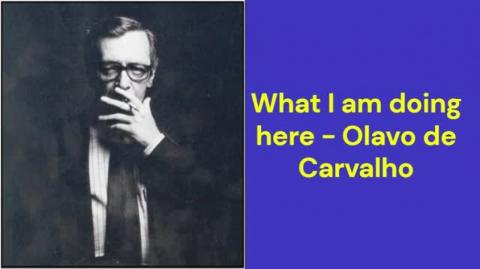
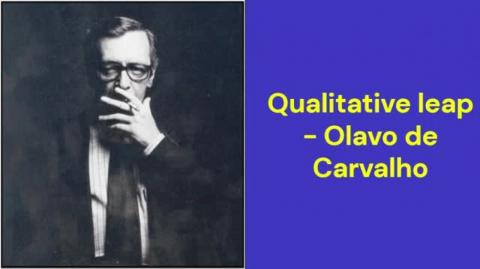
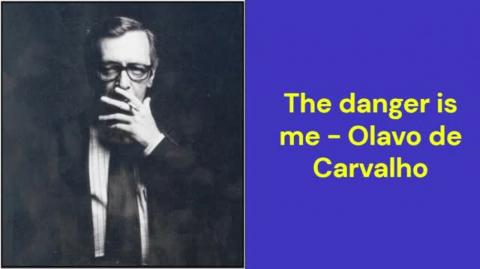
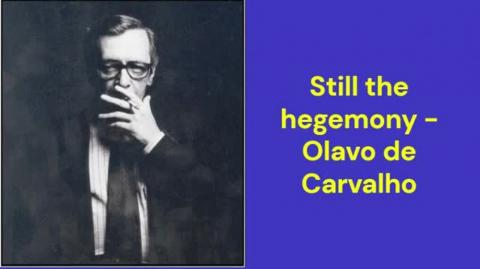
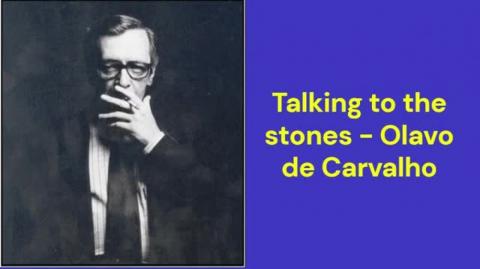
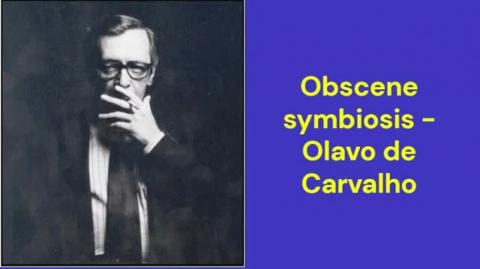
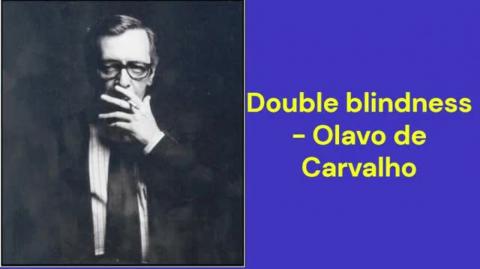
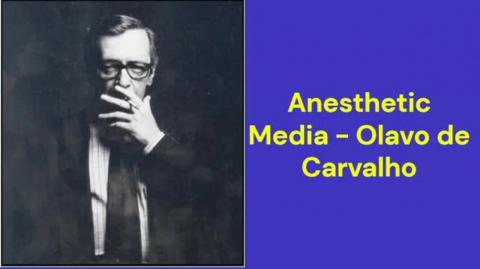
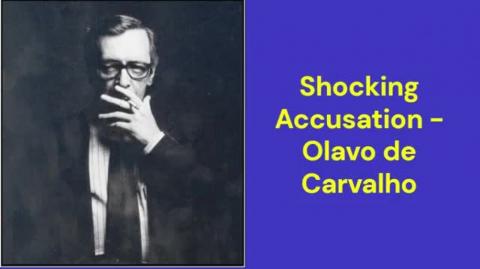
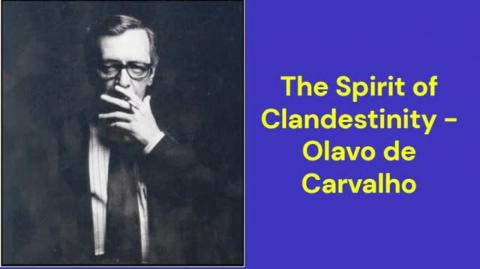
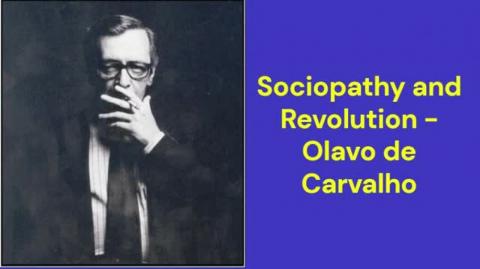
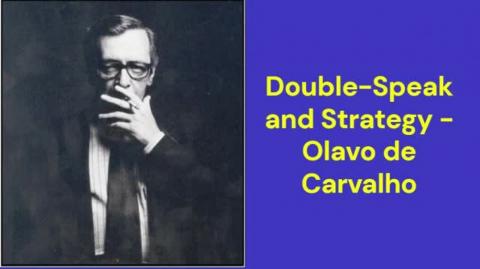

Log in to comment